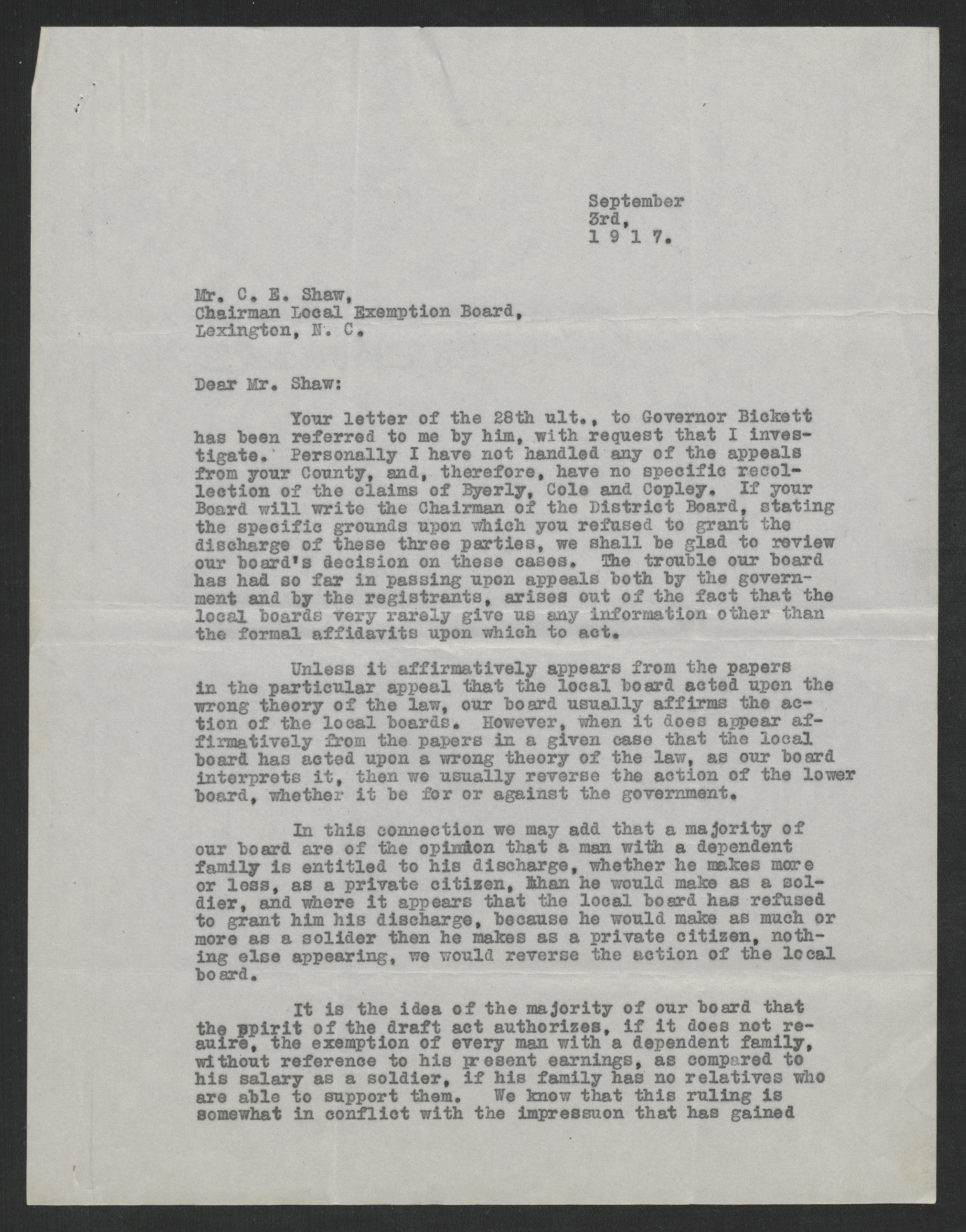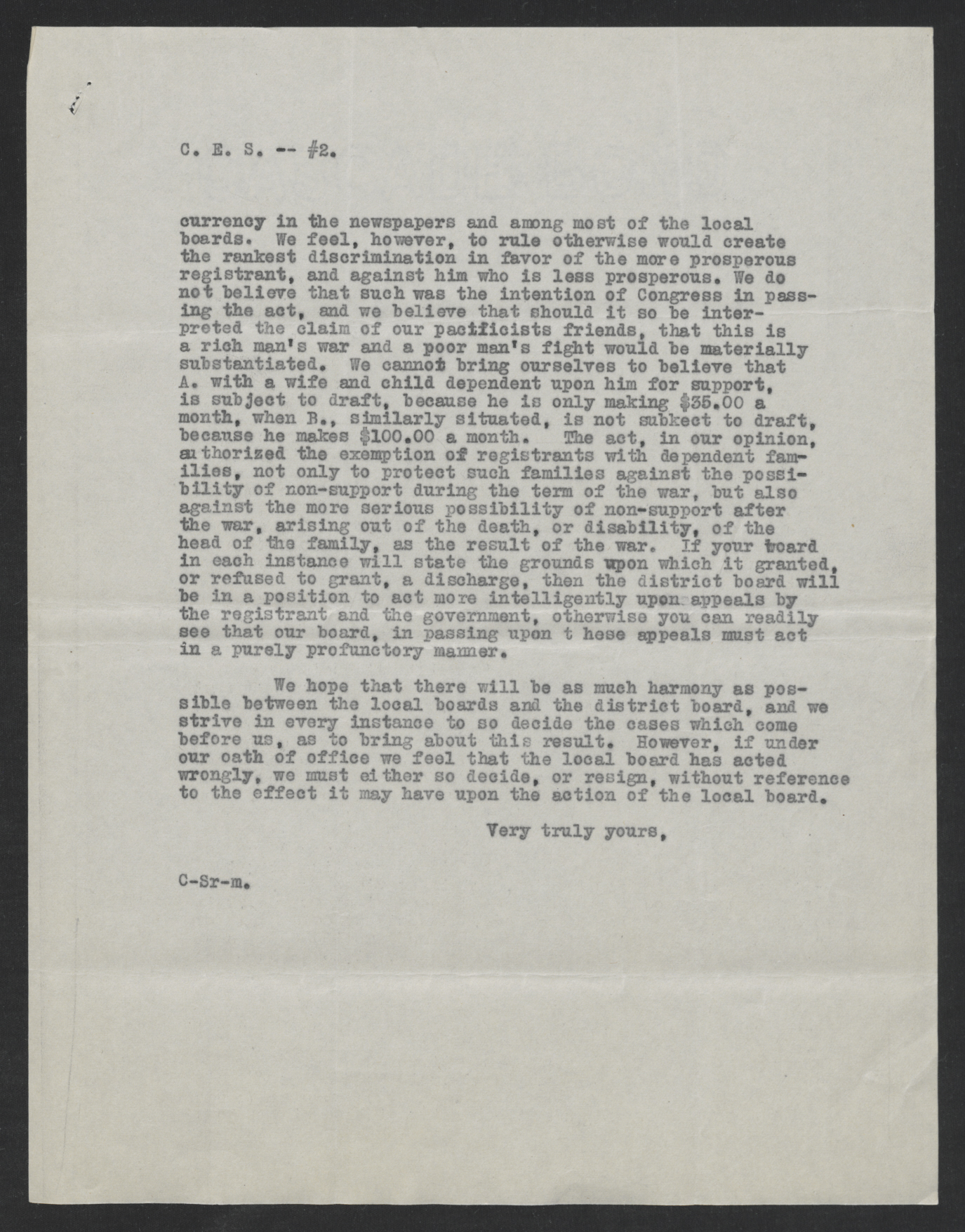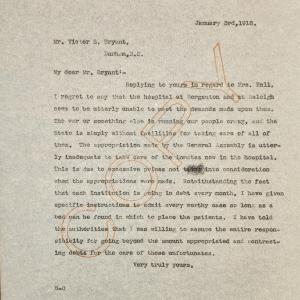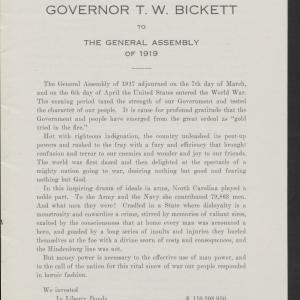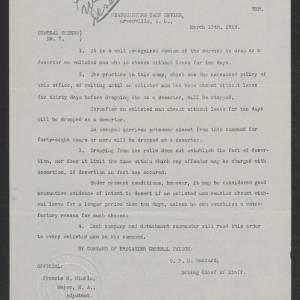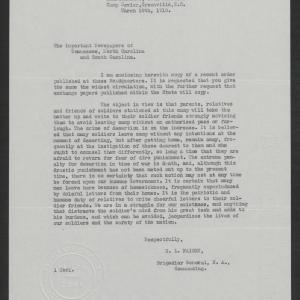September
3rd,
1917.
Mr. C. E. Shaw,
Chairman Local Exemption Board,
Lexington, N.C.
Dear Mr. Shaw:
Your letter of the 28th ult., to Governor Bickett has been referred to me by him, with request that I investigate. Personally I have not handled any of the appeals from your County, and, therefore, have no specific recollection of the claims of Byerly, Cole and Copley. If your Board will write the Chairman of the District Board, stating the specific grounds upon which you refused to grant the discharge of these three parties, we shall be glad to review our board’s decision on these cases. The trouble our board has had so far in passing upon appeals both by the government and by the registrants, arises out of the fact that the local boards very rarely give us any information other than the formal affidavits upon which to act.
Unless it affirmatively appears from the papers in the particular appeal that the local board acted upon the wrong theory of the law, our board usually affirms the action of the local boards. However, when it does appear affirmatively from the papers in a given case that the local board has acted upon a wrong theory of the law, as our board interprets it, then we usually reverse the action of the lower board, whether it be for or against the government.
In this connection we may add that a majority of our board are of the opinion that a man with a dependent family is entitled to his discharge, whether he makes more or less, as a private citizen, than he would make as a soldier, and where it appears that the local board has refused to grant him his discharge, because he would make as much or more as a solider then he makes as a private citizen, nothing else appearing, we would reverse the action of the local board.
It is the idea of the majority of our board that the spirit of the draft act authorizes, if it does not reauire, the exemption of every man with a dependent family, without reference to his present earnings, as compared to his salary as a soldier, if his family has no relatives who are able to support them. We know that this ruling is somewhat in conflict with the impressuon that has gained currency in the newspapers and among most of the local boards. We feel, however, to rule otherwise would create the rankest discrimination in favor of the more prosperous registrant, and against him who is less prosperous. We do not believe that such was the intention of Congress in passing the act, and we believe that should it so be interpreted the claim of our pacificists friends, that this is a rich man’s war and a poor man’s fight would be materially substantiated. We cannot bring ourselves to believe that A. with a wife and child dependent upon him for support, is subject to draft, because he is only making $35.00 a month, when B., similarly situated, is not subkect to draft, because he makes $100.00 a month. The act, in our opinion, authorized the exemption of registrants with dependent families, not only to protect such families against the possibility of non-support during the term of the war, but also against the more serious possibility of non-support after the war, arising out of the death, or disability, of the head of the family, as the result of the war. If your board in each instance will state the grounds upon which it granted, or refused to grant, a discharge, then the district board will be in a position to act more intelligently upon appeals by the registrant and the government, otherwise you can readily see that our board, in passing upon these appeals must act in a purely profunctory manner.
We hope that there will be as much harmony as possible between the local boards and the district board, and we strive in every instance to so decide the cases which come before us, as to bring about this result. However, if under our oath of office we feel that the local board has acted wrongly, we must either so decide, or resign, without reference to the effect it may have upon the action of the local board.
Very truly yours,
[unsigned]
C-Sr-m.

